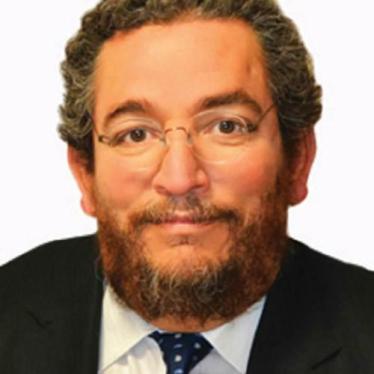Ricardo Adair, who has autism, was the first Mexican to challenge the country's system of guardianship for people with disabilities before Mexico’s Supreme Court more than a decade ago. His success planted the seed for what happened this December 1st, when in Mexico City's jurisdiction, everyone gained full recognition of their legal capacity and the possibility of receiving support to exercise it.
Back in 2022, Ricardo wrote “Everyone is capable of dreaming and deciding what they want in life. The ability to determine who we are should not depend on intelligence. Simply by being human, we should have the right to make our own decisions—for example, who we want to live with, the food we want to eat, the things we want to buy, and the medical treatments we choose to follow." As of today, Mexico City has adopted a legal system that, if properly implemented, would go a long way toward making Ricardo’s dream a reality.
The reforms now in effect are the result of years of advocacy by civil society organizations before the Federal Congress and the Congress of Mexico City.
Mexico City has taken a significant step in supporting the rights of traditionally marginalized and disadvantaged people, including those with disabilities and older people. The new National Code of Civil and Family Procedures, which comes into effect in Mexico City today, formally repeals the use of guardianship and other forms of legal capacity restrictions, recognizing the full legal capacity of all adults and their right to request support in decision-making. Within the capital’s jurisdiction, the CNPCF has now formally repeals the use of guardianship and other forms of legal capacity restrictions, recognizing the full legal capacity of all adults and their right to request support in decision-making. Also starting today, the CNPCF governs all voluntary -- or non-adversarial -- family and civil court proceedings.
Adding to this excellent news is the enactment of reforms to align the Civil Code of the Federal District (now Mexico City) with the CNPCF, completing the legislation adopted at the national level to create a system consistent with international human rights law regarding the rights of persons with disabilities.
The reform establishes several mechanisms for appointing "ordinary support" to help people exercise their legal capacity. These supports may include appointing someone to provide accessible information, facilitate the expression of will and preferences, or explain the consequences of specific decisions, such as applying for a loan, renting a home, or purchasing property. The reform allows the appointment of “ordinary supports” without a court order by using a private document that specifies the actions for which the support is requested, the person providing it, and the duration of the support.
Ordinary support complements the extraordinary support regulated under the CNPCF. Extraordinary support is strictly reserved for cases where an individual’s will and preferences cannot be determined by any means, warranting judicial intervention. The national framework strictly limits the circumstances under which such procedures can apply, ensuring they are never interpreted in a way that questions a person’s mental capacity or restricts their ability to make decisions.
Every adult has the right to exercise their legal capacity as they see fit, designate ordinary supports, and establish safeguards to prevent abuse or undue influence. No one is required to exercise their legal capacity through support.
The reform provides for advance directives, in the presence of a notary, to ensure that the person providing support carries out legal transactions in a secure and understandable manner for everyone.
The regulations now in effect include several safeguards to prevent abuse or undue influence by support providers. These safeguards allow for the invalidation of any fraudulent actions or actions taken without due diligence, such as cases involving intentional deception or negligence in the provision of services, requiring the support provider to compensate for damages.
Given the new regulations, civil and family judicial authorities in Mexico City must prepare to apply the provisions of both legal instruments to uphold the full legal capacity of all adults. Both the Mexico City Congress and its Superior Court of Justice should enhance the dissemination of information about the reforms now in effect, and public and private law schools should update their curricula for judges, lawyers, and other legal professionals.
Finally, the remaining 31 states in Mexico that still need to harmonize their local laws to align with the new legal capacity provisions should promptly do so and ensure that all adults, including people with disabilities and older people, can effectively exercise their rights.









